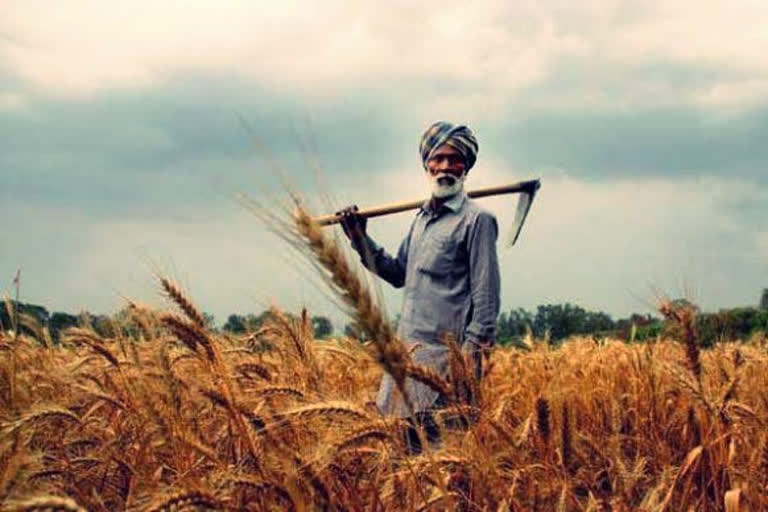New Delhi:India is looking forward to the Annual Budget 2022-23 which will be presented by the union finance minister on Tuesday. Like every budget, this year too brings a lot of expectations for the country fighting the third wave of Covid-19 while bearing the impact of the pandemic on the economy.
Agriculture is one of the prime sectors to look at as it contributes roughly 18 per cent to the GDP with more than 60 per cent of the Indian population directly or indirectly associated with it.
As such, allocation to this sector has increased in the NDA government. In the year 2021-22, the Agriculture Budget amounted to 1,23,018 crore which was a 14% increase from 2020-21. As per the trends for the last seven years of the Modi government, an increase in the allocation is well expected but at the same time, experts and the farmer bodies have their own expectations and predictions as far as budgetary allocations to this sector are concerned.
Speaking to ETV Bharat, Agriculture Expert and the Chairman of Indian Chambers of Food and Agriculture (ICFA), MJ Khan emphasized the need to promote organic farming, agri-startups, agri-entrepreneurship, and exports.
"The government talks about organic and zero budget farming but it needs to work on that aspect. Chemical fertilizers are subsidized for farmers but there is no subsidy on organic inputs. Also, the GST on chemical fertilizers is 5 per cent whereas, on biofertilizers, it is 12 per cent. If you want to promote zero budget or organic farming, these things need to be addressed" he said.
During the pre-budget consultation meetings with the union finance minister, the ICFA chairman had suggested the government address five points which included Jointly Branded Kisan Credit Cards, increase in the number of incubation centers to give a boost to agri-entrepreneurship, a special mission for agri-startups, schemes to promote fisheries/poultry/dairying and emphasis on increasing agri-exports.
There is a general view that the budget for agriculture this year will come with some populist measures as polls in agriculture-driven states of Punjab and Uttar Pradesh are around the corner.
The centre recently repealed the three contentious farm laws after a year-long protest by farmer unions on Delhi borders but it is said that the anger among the farmer community persists because of delayed response from the government. Also, the farmers are at feud over unaddressed demands the government had given written assurance on after which the protest on Delhi borders was called off.
